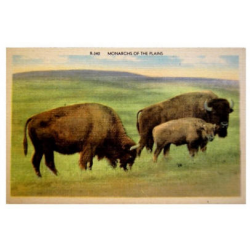
For our 2024 rankings, the research team at Nursing Schools Almanac collected data on nearly 3,000 nursing schools and campuses throughout the United States. We included the following states within our Plains rankings: Iowa, Kansas, Minnesota, Missouri, Nebraska, North Dakota, and South Dakota. We evaluated each nursing school in the region on three dimensions:
- The institution’s academic prestige and perceived value
- The breadth and depth of nursing programs offered
- Student success, particularly on the NCLEX licensure examination
We then combined these assessments into an overall score and ranked the schools accordingly. For a detailed description of our assessment methodology and dimension weights, please see here.
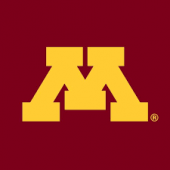
#1: University of Minnesota
The University of Minnesota School of Nursing is one of the oldest and largest nursing schools in the region. It was the first nursing school in the nation to offer DNP programs in certified registered nurse anesthetist, nursing informatics, and health innovation and leadership. Indeed, the school’s DNP program was recently ranked among the top 30 nationwide by U.S. News & World Report. The University of Minnesota also offers highly regarded BSN and MSN programs. The school produces 120-140 BSN and 60-65 MSN prelicensure graduates annually. These students have achieved NCLEX first-time pass rates of 87% and 92%, respectively, over the past decade.
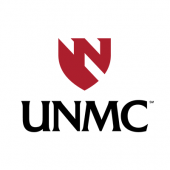
#2: University of Nebraska Medical Center
The University of Nebraska Medical Center is a prominent and vast institution that enrolls more than 3,700 students. Nearly half of the state’s bachelor-prepared nurses, physicians, dental professionals, pharmacists, and allied health professionals have graduated from UNMC. The school’s College of Nursing offers traditional BSN, accelerated BSN, and RN-to-BSN programs for undergraduates, as well as MSN, DNP, and PhD degrees for graduate nurses. In addition, a post-master’s certificate is offered in areas ranging from adult gerontology to women’s health. Prelicensure BSN graduates have enjoyed an excellent 91% first-time pass rate on the NCLEX-RN examination over the past eight years.
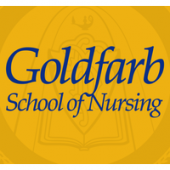
#3: Goldfarb School of Nursing at Barnes-Jewish College
Goldfarb School of Nursing at Barnes-Jewish College was the first school in the nation accredited by the National League for Nursing. The college has also been recognized as a Laerdal Center of Educational Excellence. Barnes-Jewish College conducts BSN, MSN, DNP, and PhD degree programs across two campus sites, one at Washington University Medical Center and one at Missouri Baptist Medical Center. Approximately 400 BSN graduates sit for the National Council Licensure Examination annually, and they have passed this test at a 90% first-try rate over the past decade. More than 40% of graduates land positions at Barnes-Jewish Hospital.
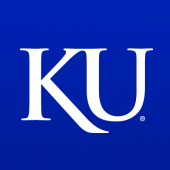
#4: University of Kansas Medical Center
The University of Kansas School of Nursing has twice been designated an NLN Center of Excellence for enhancing student learning and professional development. The university also ranks among the top 25 public nursing schools nationwide in terms of National Institutes of Health research funding. KU School of Nursing offers a notable breadth of programs including advanced practice clinical, leadership, and nurse educator certificates; traditional BSN, RN-to-BSN, MSN, and DNP degrees; and a PhD program in nursing, the only one of its kind in the region. Traditional BSN graduates have averaged a strong 91% first-time pass rate on the NCLEX licensure exam over the past decade.
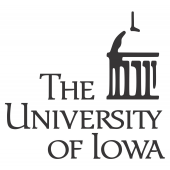
#5: University of Iowa
The College of Nursing at the University of Iowa is a Big Ten nursing school, hailed as a national leader in gerontology, nursing service administration, pediatric nursing practice, and nurse anesthesia. Indeed, the university frequently receives top-ten national rankings in all four of these specializations. UI College of Nursing offers a full slate of graduate programs including DNP and PhD degrees, seven different post-graduate certificates, and an MSN with clinical nurse leader focus. At the undergraduate level, the college produces approximately 130 BSN candidates annually. These students have passed the NCLEX licensure examination at a rate of 94-98% an amazing seven years in a row.
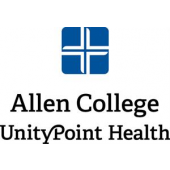
#6: Allen College
Allen College graduated its first DNP class in 2013. The school also offers four nurse practitioner tracks in its MSN program, including adult-gerontology acute care, adult-gerontology primary care, family practice, and family psychiatric mental health. The school’s baccalaureate program has three prelicensure tracks (traditional, accelerated, and LPN-to-BSN) and two postlicensure tracks (RN-to-BSN and public health). BSN students have the option to earn a minor in the pioneering area of population health. Allen College produces 100-125 prelicensure BSN graduates annually, and these students have passed the NCLEX exam at a stellar 94% rate over the past decade.
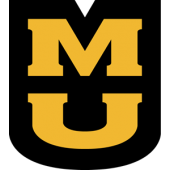
#7: University of Missouri
The University of Missouri’s Sinclair School of Nursing (SSON) is a member of one of the most comprehensive healthcare networks in Missouri, including the School of Health Professions, the School of Medicine, and University of Missouri Health Care. SSON educates nurses at all levels through its traditional BSN, accelerated BSN, online RN-to-BSN, MSN, DNP, and PhD degree programs. At the undergraduate level, SSON produces 150-200 prelicensure BSN graduates annually. These students have passed the NCLEX-RN exam at an exceptional rate of 94% over the past decade.
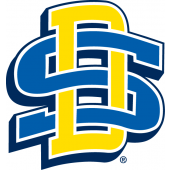
#8: South Dakota State University
The College of Nursing at South Dakota State University has an 80-year history of providing high-quality nursing education. Home to more than 1,000 nursing students across its BSN, MSN, post-graduate certificate, DNP, and PhD programs, SDSU has posted an enviable job placement rate as high as 100% for some recent graduating classes. The undergraduate nursing program produces approximately 300 prelicensure candidates each year. These students have scored an impressive 92% first-time pass rate on the NCLEX licensure exam over the past decade. Recent years have also witnessed a perfect 100% pass rate for APRN graduates seeking certification through the American Academy of Nurse Practitioners or the American Nurses Credentialing Center.
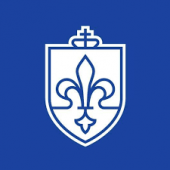
#9: Saint Louis University
The School of Nursing at Saint Louis University created the first accelerated BSN and comprehensive online MSN programs in the nation, the first accelerated MSN and nursing PhD programs in Missouri, and the first DNP program in St. Louis. SLU’s BSN graduates have maintained a strong NCLEX-RN exam pass rate of 90% over the past decade, well above both state and national averages. In addition to impressive licensure exam pass rates, Saint Louis University’s programs are nationally recognized for their innovative and comprehensive curriculum.
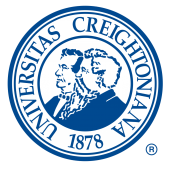
#10: Creighton University
The College of Nursing at Creighton University was the first nursing school in Nebraska to offer clinical nurse leader and doctor of nursing practice programs. The school also has MSN and post-graduate certificate programs, as well as both a four-year BSN and an accelerated BSN that can be completed in just one year. The college graduates between 150 and 200 BSN students annually, and they have achieved a 92% first-time NCLEX pass rate over the past decade. Just as impressively, Creighton’s graduate students typically score a 100% first-time pass rate on their nurse practitioner certification exams.
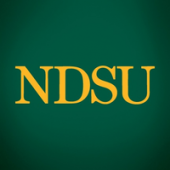
#11: North Dakota State University
The School of Nursing at North Dakota State University offers several degree programs, both for students with no prior healthcare experience and for licensed nurses looking to enhance their careers. Options include prelicensure BSN, LPN-to-BSN, and RN-to-BSN tracks as well as a BSN-to-DNP program with a family nurse practitioner (FNP) specialty. Each year, 130-160 BSN graduates take the NCLEX exam across both the NDSU Fargo campus and NDSU Nursing at Sanford Health Bismarck. These students have averaged an impressive first-time pass rate of 94% over the past decade. The number of FNP graduates who pass the certification examination for advanced practice also well exceeds the national average.
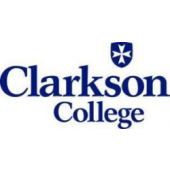
#12: Clarkson College
At more than 125 years old, Clarkson College was the very first nursing school in the state of Nebraska. It is also one of the few schools to provide a variety of in-demand bridge programs, including specific pathways like LPN-to-BSN, RN-to-BSN, and RN-to-MSN. In addition, Clarkson offers a traditional BSN degree, an MSN program with five specialty tracks – each of which is also available as a post-graduate certificate – and a DNP curriculum with four specialty tracks and a post-master’s pathway. The college typically graduates 100-plus prelicensure BSN students each year, with a phenomenal 96% first-time NCLEX pass rate over the past five years.

#13: Nebraska Methodist College
Nebraska Methodist College has just one focus: healthcare education. The school provides programs both for students who wish to study on campus and for those who prefer to study online. Because of its singular focus and multiple delivery options, Nebraska Methodist offers one of the largest collections of nursing programs in the region. Degree options include several BSN pathways (traditional, accelerated, LPN-to-BSN, RN-to-BSN), three MSN specializations (educator, executive, informatics), and a DNP program with two focuses (family nurse practitioner, clinical nurse specialist) and two entry points (post-BSN, APRN). The college graduates 100-150 prelicensure BSN students each year, with a strong 94% NCLEX-RN exam pass rate over the past decade.
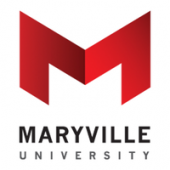
#14: Maryville University
The Catherine McAuley School of Nursing at Maryville University has a considerable collection of program offerings for aspiring nurses. Maryville offers traditional and degree completion BSN programs, as well as a fast-track BSN for students who have completed 65 hours of liberal arts and science coursework. Across the prelicensure BSN pathways, the school graduates approximately 125 students annually. They have consistently scored stellar marks on the NCLEX licensure exam, averaging a 92% first-time pass rate over the past decade. Maryville’s MSN and DNP programs have five specialty NP tracks: family nursing, adult-gerontology primary care, adult-gerontology acute care, pediatric nursing, and psychiatric mental health.
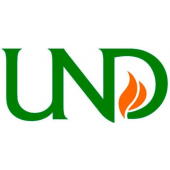
#15: University of North Dakota
The College of Nursing & Professional Disciplines at the University of North Dakota has a 100-year history of educating nurses. The college offers four different pathways for students seeking an undergraduate degree: traditional on-campus BSN, accelerated BSN, LPN-to-BSN, and RN-to-BSN. The school graduates approximately 120-150 students annually across its prelicensure BSN programs, and these individuals frequently pass the NCLEX exam at a rate of 95% or higher. Indeed, three recent classes have scored a perfect 100% NCLEX pass rate. MSN students can pursue specialties ranging from family nurse practitioner to nurse educator. The college also offers both terminal degrees in the field: a doctor of nursing practice (DNP) and a PhD in nursing.

#16: Bryan College of Health Sciences
Bryan College of Health Sciences offers traditional BSN, RN-to-BSN, MSN, and DNAP programs. BSN students enjoy a low 6:1 clinical student-to-faculty ratio, more than 1,200 clinical hours (the highest in the state), and training experiences at Bryan Medical Center and 200+ other sites. BSN graduates have achieved an excellent 95% first-time NCLEX pass rate over the past decade, including a 99% pass rate in 2017, 2018, and 2020. The MSN program has two tracks (nurse educator and nurse leadership), a preceptor program with real-life situational learning, and a blended learning format that is conducted 75% online and 25% in-classroom. DNAP students also begin their clinical experiences very early in the program.

#17: Winona State University
The College of Nursing & Health Sciences at Winona State University focuses on both undergraduate and graduate nursing education. The undergraduate program produces approximately 150 BSN graduates annually, who have passed the NCLEX licensure exam at a solid 89% rate over the past decade. Similarly impressive is the number of graduate nursing offerings available. Graduate students may pursue an MSN, DNP, or graduate certificate, including specializations in family practice nursing and adult health nursing. Winona State also offers RN-to-BSN and RN-to-MSN degree completion programs for existing registered nurses.
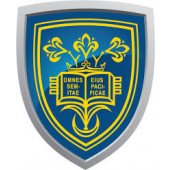
#18: College of St. Scholastica
The College of St. Scholastica’s School of Nursing is one of the largest nursing schools in Minnesota. St. Scholastica offers three undergraduate nursing tracks: a traditional four-year undergraduate program, an accelerated pathway for students who have a non-nursing baccalaureate degree, and an RN-to-BS offering for registered nurses with associate degrees. The school graduates 140-180 students annually from its prelicensure BS tracks, and these students have achieved an 84% first-time pass rate on the NCLEX licensure exam over the past decade. St. Scholastica also offers DNP tracks for both APRNs and baccalaureate-prepared RNs.
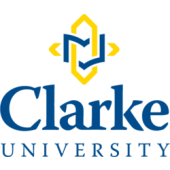
#19: Clarke University
Clarke University’s nursing department offers high-quality, hands-on education at the baccalaureate and doctoral levels. The school’s prelicensure BSN program graduates a select cohort of 30-50 students annually. These BSN graduates have averaged an 80% first-time NCLEX pass rate over the past decade, and approximately 95% of students hold job offers before graduation. Clarke’s DNP program offers three concentrations: family nurse practitioner, health leadership and practice, and psychiatric-mental health nurse practitioner. Graduate students may also add a specialization certificate in nursing education or psychiatric-mental health. DNP cohorts are limited to twenty students apiece, and the curriculum includes more than 1,000 clinical hours in the area of concentration. Clarke University’s doctoral students have scored a 100% pass rate on national certification exams and a 100% job placement rate.
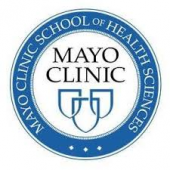
#20: Mayo Clinic School of Health Sciences
Mayo School of Health Sciences is part of the prestigious Mayo Clinic, which ranks number one in more specialties that any other hospital in the nation. The school enrolls nursing students across its three campuses in Jacksonville, Florida; Phoenix / Scottsdale, Arizona; and Rochester, Minnesota. The Rochester campus houses a wide breadth of clinical graduate nursing programs including nurse practitioner, nurse midwife, and nurse anesthetist offerings. Clinical experiences allow students to rotate through the entire hospital care setting, from pediatrics to critical care.
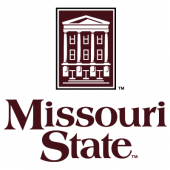
#21: Missouri State University
Missouri State University’s School of Nursing is an integral part of the McQueary College of Health and Human Services. The school offers a breadth of program options. Undergraduates can pursue a traditional prelicensure BSN or an RN-to-BSN completion pathway. The prelicensure program graduates approximately fifty students annually, with an impressive 94% first-time NCLEX pass rate over the past decade. The school’s MSN program has three tracks (family nurse practitioner, population health leadership, nurse educator), with a post-master’s certificate also available in the final two areas. Finally, doctoral nursing students have three options: a post-baccalaureate DNP with an FNP focus, a post-master’s DNP, and a doctor of nurse anesthesia practice (DNAP) offered through the university’s School of Anesthesia.
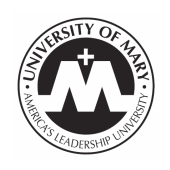
#22: University of Mary
The School of Health Sciences at the University of Mary offers a community-focused nursing program with several degree paths. Undergraduates can pursue a traditional four-year BSN or a BSN completion program with LPN and RN entry points. The school produces 50-70 prelicensure BSN graduates annually, and these students have passed the NCLEX-RN licensure examination at a solid 86% rate over the past ten years. At the graduate level, the University of Mary offers two MSN tracks (nursing administrator, nursing informatics) and a DNP program with an FNP focus. The university offers clinical opportunities at CHI St. Alexius Health in Bismarck and at local public health agencies, nursing homes, hospitals, and schools.
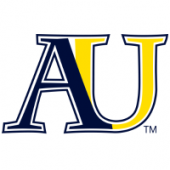
#23: Augustana University
The Department of Nursing at Augustana University is home to the only four-year professional nursing program in the region that is part of a liberal arts college or university. The department offers a unique nursing exchange program that partners with six Norwegian institutions. Augustana’s nursing degree options include both traditional and accelerated BSN programs. The accelerated program requires a bachelor’s degree in a non-nursing field, and it takes just 16 months to complete. Both programs prepare students for the NCLEX licensure examination, where Augustana’s ~50 annual graduates have performed impressively well, scoring a 95% pass rate over the past decade.
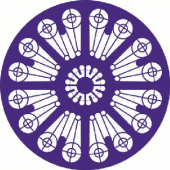
#24: St. Catherine University
St. Catherine University, also known as St. Kate’s, is home to the Henrietta Schmoll School of Health. The school offers 22 professional and pre-professional healthcare programs, including several options within nursing. At the undergraduate level, St. Kate’s offers an associate degree program on its Minneapolis campus, a traditional BSN degree on its St. Paul campus, and an RN-to-BSN program for adult learners. Graduate offerings include three MSN tracks (entry-level, nurse educator, nurse practitioner) and a DNP program with several dual-degree options. Entry-level MSN students have passed the NCLEX licensure exam at a phenomenal 96% rate since the program’s recent inception.
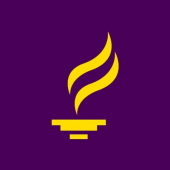
#25: Minnesota State University, Mankato
The School of Nursing at Minnesota State Mankato is a thriving learning community with a versatile assortment of nursing programs. The school’s prelicensure BSN program prepares students rigorously for the NCLEX-RN licensure examination, for public health certification, and/or for school nurse licensure. The program’s 70-100 annual graduates have passed the NCLEX exam at an 85% rate over the past decade. The school also offers a BSN completion program for existing RNs. Minnesota State Mankato’s graduate nursing programs include two MSN tracks (family nurse practitioner and nurse educator) and a DNP program with two entry options (post-BSN and post-MSN).
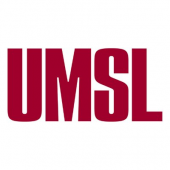
#26: University of Missouri - St. Louis
The University of Missouri - St. Louis (UMSL) College of Nursing enrolls more than 1,100 students across its undergraduate and graduate programs. The college offers a breadth of nursing pathways including prelicensure BSN (traditional, accelerated, or part-time), RN-to-BSN, MSN, DNP, and PhD degrees. Post-graduate certificates are also available in areas of advanced nursing practice such as women’s health, psychiatric-mental health, and adult-geriatric health. UMSL graduates approximately 200 prelicensure BSN students annually, and the school has averaged an 87% first-time NCLEX pass rate over the past decade.
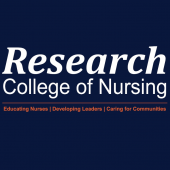
#27: Research College of Nursing
Research College of Nursing began as the German Hospital Training School for Nurses in 1905. Over its history of 100-plus years, the college has graduated more than 4,000 professional nurses at both the undergraduate and graduate levels. The undergraduate program features accelerated and traditional BSN tracks. Across the two pathways, approximately 100 BSN students complete the program each year. These students have posted a strong 90% NCLEX pass rate over the past decade, including a stellar 97% pass rate in 2018. The graduate nursing curriculum features an MSN degree with three tracks: adult-gerontological nurse practitioner, executive practice / healthcare leadership, and family nurse practitioner. Research College of Nursing also offers an RN-to-MSN entry point for ADN- and diploma-prepared nurses.
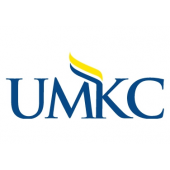
#28: University of Missouri - Kansas City
The UMKC School of Nursing offers a diversity of nursing programs. Degree options include three BSN pathways (traditional, accelerated, RN-to-BSN) and graduate programs at the MSN, DNP, and PhD levels. Prelicensure BSN students consistently perform well on the NCLEX exam, scoring an 89% average pass rate over the past decade and an impressive 97.4% pass rate in 2019. The postlicensure RN-to-BSN, MSN, and DNP degrees can all be completed online. In addition, UMKC offers a graduate certificate program for nurses who already hold an MSN or DNP degree. Eight tracks are available, including a nurse educator certificate and seven distinct nurse practitioner specialties.
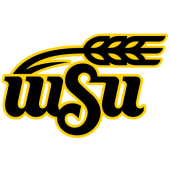
#29: Wichita State University
The School of Nursing at Wichita State University is the second-largest nursing school in the state of Kansas. The undergraduate nursing curriculum includes six BSN options: traditional, early admission, accelerated, LPN-to-BSN, MICT-to-BSN, and RN-to-BSN. At the graduate level, Wichita State offers an MSN with two concentrations (nursing education, nursing leadership) and a DNP with three nurse practitioner specializations. Each year, the school’s approximately 150 BSN graduates pass the NCLEX licensure exam at an 86-93% pass rate, consistently exceeding both the state and national averages. Graduate students who take APRN certification exams consistently exceed national pass rates as well.
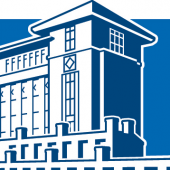
#30: Metropolitan State University
The Metropolitan State University Department of Nursing is part of the College of Nursing and Health Sciences. For the past decade, the university has partnered with seven community colleges to lead the Minnesota Alliance for Nursing Education (MANE) BSN program. This innovative curriculum expands the BSN’s reach by offering courses both at local community colleges and on the university’s Saint Paul campus. Metro State also offers an RN-to-BSN pathway with both online and hybrid cohorts. Registered nurses with an associate degree or diploma can complete the part-time program in just five semesters of study. The university’s graduate nursing students can pursue either an entry-level MSN (ELMSN) degree or a terminal DNP degree. The ELMSN program graduates 25-30 new nurses annually who have passed the NCLEX exam at an impressive 91% first-try rate over the past decade. The DNP curriculum offers post-baccalaureate tracks for aspiring family nurse practitioners and nurse anesthetists; the latter is conducted in partnership with the Minneapolis School of Anesthesia.
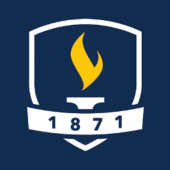
#31: Bethel University
The Department of Nursing at Bethel University produces 70-80 prelicensure BSN graduates each year, who have passed the NCLEX-RN licensure exam at a solid 84% rate over the past decade. In addition to licensure exam prep, Bethel’s BSN program enables students to enter a variety of graduate programs for APRN roles, ranging from certified registered nurse anesthetist to clinical nurse specialist. The university’s nursing department also offers an RN-to-BSN program for existing registered nurses, MSN tracks for aspiring midwives and nurse educators, and an online nurse educator graduate certificate.

#32: St. Olaf College
St. Olaf College takes a holistic approach to nursing that integrates development of the whole person, a commitment to lifelong learning, and service to others. The school’s four-year BSN program includes unique courses such as Images of Wellness, Holistic Health Assessment & Promotion, and Complex Patient Care. Besides an innovative curriculum, the program incorporates clinical learning experiences across a variety of local and Twin Cities medical centers, long-term care facilities, and community agencies. After years of offering the BSN jointly with Gustavus Adolphus, St. Olaf College recently launched a separate program with a small class size of approximately 25 students per cohort. These BSN students have passed the NCLEX exam at an outstanding 96% first-time rate over the past several years.

#33: Fort Hays State University
The Department of Nursing at Fort Hays State University offers numerous pathways to a bachelor’s degree, master’s degree, post-graduate certificate, or doctoral degree in nursing. At the undergraduate level, Fort Hays State has both a traditional on-campus BSN and an online RN-to-BSN. The BSN curriculum offers many exciting tracks including emergency room care, intensive care, pediatrics, and obstetrics. Over the past decade, BSN graduates have achieved a noteworthy 86% NCLEX exam pass rate. The MSN and post-graduate certificate programs are offered online, with specializations in nursing education and nursing administration. The DNP has tailored entry points for BSN-holders, MSN-holders, and licensed APRNs.
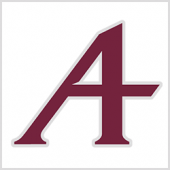
#34: Augsburg University
The nursing programs at Augsburg University are designed to address the specific needs of diverse populations, both in the U.S. and abroad. Immersion courses and study abroad experiences are integrated into all of the school’s nursing programs. Many of these experiences take students to overseas locations ranging from England to Namibia. Classes for all of the school’s nursing programs meet at both the Minneapolis and Rochester campuses. Augsburg University offers a BSN completion pathway, a master of arts in nursing, and a DNP degree with tracks in transcultural nursing leadership and family nurse practitioner.
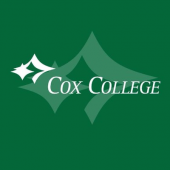
#35: Cox College
For more than a century, Cox College has educated compassionate and dedicated nurses. The school enrolls nearly 1,000 students across a wide breadth of healthcare offerings at the associate, bachelor’s, and master’s degree levels. Cox College’s nursing program is distinguished by its small class sizes, focus on student leadership, and clinical partnership with CoxHealth. These advantages have enabled Cox graduates to perform strongly on their licensure exams. ASN students achieved a 92% first-time NCLEX pass rate over the past decade, while BSN graduates scored an 88% first-time NCLEX pass rate over that time period. The college also offers a BSN completion pathway and three MSN tracks (family nurse practitioner, nurse educator, psychiatric-mental health nurse practitioner), all designed for working nurses and conducted almost completely online.
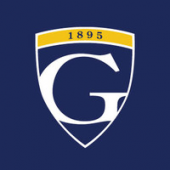
#36: Graceland University
Graceland University prepares a tight-knit graduating class of 40-50 prelicensure BSN students annually. Over the past decade, these graduates have achieved a 90% first-time pass rate on the NCLEX licensure exam, well above both state and national averages. Graceland’s School of Nursing also offers both campus-based and online RN-to-BSN programs, an MSN program with two specialty tracks (family nurse practitioner and nurse educator), an RN-to-MSN entry option, and an online DNP program. The MSN offering is frequently named one of U.S. News & World Report’s top twenty online MSN programs nationwide, with particularly high marks for faculty credentials and student engagement.
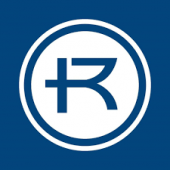
#37: Rockhurst University
Saint Luke’s College of Health Sciences, now an integral part of Rockhurst University, has educated nurses since 1903. The school is affiliated with Saint Luke’s Hospital in Kansas City, an internationally renowned healthcare facility. Students have several degree options including a prelicensure BSN, an RN-to-BSN bridge pathway, and an MSN degree with three specializations (adult-gerontology acute care nurse practitioner, family nurse practitioner, and nurse educator). The college is noted for its small class sizes, networking opportunities with one of Kansas City’s largest employers, local volunteer opportunities, and a 100% job placement rate. The prelicensure BSN program graduates 160-180 new nurses annually. Over the past decade, these students have averaged an 86% first-time pass rate on the NCLEX-RN national licensure examination.

#38: Mount Marty University
The nursing programs at Mount Marty University focus on mastering current technology and treating diverse populations. The school offers an undergraduate nursing major that accommodates both traditional and LPN entry points. The BSN program graduates approximately thirty students annually, and they have averaged a 77% first-time pass rate on the NCLEX-RN licensure exam over the past decade. Mount Marty’s MSN degree has two nurse practitioner focal areas (family, psychiatric-mental health) and a unique six-semester structure, with both online and face-to-face coursework designed for working adults. In 2016, Mount Marty University became the first South Dakota institution to offer an accredited doctor of nurse anesthesia practice (DNAP) degree. Located in Sioux Falls, the DNAP program accepts both baccalaureate- and master’s-prepared candidates.
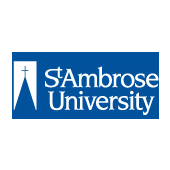
#39: St. Ambrose University
St. Ambrose University’s Department of Nursing is located in SAU’s state-of-the-art Health Sciences Education Center at Genesis Medical Center, a member of the award-winning Genesis Health System. Two nursing degree options are available: a traditional four-year BSN program and an RN-to-BSN completion pathway. The traditional BSN program focuses heavily on nursing theory before the start of patient care experiences. SAU graduates 50-80 students annually from this program, with a solid 83% first-try pass rate on the NCLEX exam over the past decade. The RN-to-BSN pathway is offered in both standard and accelerated formats.

#40: University of South Dakota
USD Nursing has been designated a National League for Nursing Center of Excellence three times for enhancing student learning and professional development. USD graduated its first four-year BSN class in May 2015, and the university currently offers the prelicensure BSN program at four campuses: Vermillion, Sioux Falls, Rapid City, and Pierre. BSN graduates have maintained a strong 90% first-time pass rate on the NCLEX licensure exam since the program’s launch. Other offerings include an LPN-to-ASN bridge program (available at the Watertown campus) and an RN-to-BSN completion program (available exclusively online). A unique component of USD Nursing is the international clinical experience in Guatemala, where students have the opportunity to provide healthcare services to rural indigenous people.
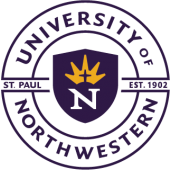
#41: University of Northwestern
University of Northwestern (UNW) offers a prelicensure BSN that provides a strong foundation in biblical studies, liberal arts, and the sciences. Two paths are available: the accelerated path and the traditional path. Both options provide small class sizes, transcultural learning opportunities, an engaged student-faculty community, and excellent support. Students can take courses that include Professional Nursing: Called to Serve, Foundational Adult Care Services, and Pharmacology & Therapeutic Services. Since the recent launch of the BSN program, UNW graduates have enjoyed a phenomenal 98% pass rate on the NCLEX-RN licensure exam. The university can also boast a perfect 100% job placement rate within six months of graduation.
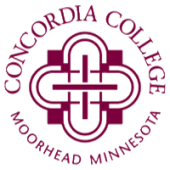
#42: Concordia College
The Concordia College nursing curriculum is approved by both the Minnesota and North Dakota Boards of Nursing. The school’s traditional and accelerated BSN programs emphasize global health and cultural competence through immersion opportunities in countries like China, Vietnam, and Tanzania. Concordia students have access to laboratories with simulation manikins, as well as convenient clinicals and internships at renowned healthcare facilities throughout the Fargo-Moorhead metropolitan area. Each year, approximately 40 BSN graduates from Concordia take the NCLEX-RN national licensure exam, achieving a stellar 94% first-time pass rate over the past decade.
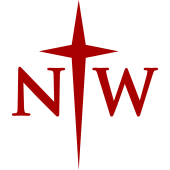
#43: Northwestern College
The four-year BSN program at Northwestern College has several distinctive features, including healthcare-related mission trips, a state-of-the-art nursing laboratory with six human patient simulators, and a biennial study-abroad course in Africa. This selective prelicensure program graduates a cohort of just 20-25 students each year. Over the past decade, Northwestern graduates have passed the NCLEX licensure exam at an 87% rate on their first attempt. The nursing department also offers an online RN-to-BSN program with a seamless transfer policy for associate degree credits and work experience.
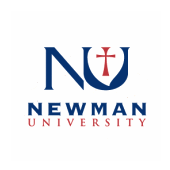
#44: Newman University
Newman University admits 64 students annually into its nursing program in two installments, half in August and half in January. Undergraduate nursing options include traditional BSN, LPN-to-BSN, and RN-to-BSN pathways. The university’s BSN graduates have averaged an 84% first-time pass rate on the NCLEX-RN licensure exam over the past five years, including a perfect 100% pass rate during 2017. Newman University also offers the coveted doctor of nurse anesthesia practice (DNAP) degree, one of only two such programs approved to operate in the state of Kansas. The DNAP curriculum requires approximately 36 months of full-time study to complete.
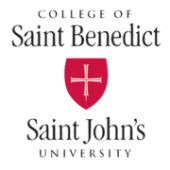
#45: College of Saint Benedict & Saint John’s University
The College of Saint Benedict & Saint John’s University have jointly prepared nurse leaders for forty years. The schools offer an undergraduate BSN program with several unique components, including participation in the Minnesota Student Nurse Association and a study-abroad experience in South Africa or Belize. Student pass rates on the NCLEX licensure exam have frequently exceeded the national average for baccalaureate graduates, with an 88% cumulative pass rate over the past decade. Several graduating classes have achieved NCLEX pass rates in excess of 95%.
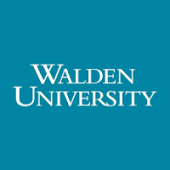
#46: Walden University
Walden University offers more than thirty online degree and certificate pathways for registered nurses with a current, unencumbered license. Those who wish to complete their undergraduate education can pursue either an RN-to-BSN or RN-to-MSN pathway. The university’s MSN curriculum provides nine in-demand specializations including nurse executive, nursing education, nursing informatics, public health nursing, and five nurse practitioner fields. Most MSN specializations are also offered as a post-master’s certificate. Doctoral candidates can choose from six DNP specializations and five PhD specializations, including an innovative Doctor of Philosophy in Nursing Interdisciplinary Health. In fact, Walden University has awarded more doctoral degrees to African-American students than any other U.S. institution over the past five years.
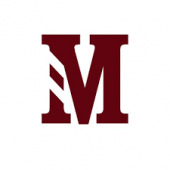
#47: Morningside University
Morningside University focuses on cultivating a passion for lifelong learning, a dedication to ethical leadership, and a desire for civic responsibility in each student. The Nylen School of Nursing offers a prelicensure BSN program with three years of clinical experience, more than most other nursing schools. Each graduating cohort is small, typically 20-30 students, and outcomes are excellent: BSN students have averaged a 91% NCLEX pass rate over the past decade, including two years with a perfect 100% pass rate. Graduate students can pursue three MSN tracks: adult gerontology primary care nurse practitioner, clinical nurse leader, and family primary care nurse practitioner. The school also offers a post-master’s certificate in each area. Finally, Morningside University recently launched the institution’s first doctoral offering: a DNP program with nurse practitioner and transformative leadership tracks.
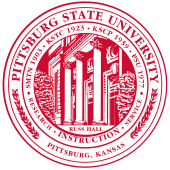
#48: Pittsburg State University
The Irene Ransom Bradley School of Nursing at Pittsburg State University offers two BSN pathways (prelicensure, RN-to-BSN), an MSN degree with an educational emphasis, and two DNP entry points (post-BSN, post-MSN). Since 2012, Pittsburg State’s prelicensure BSN students have averaged a 90% first-time pass rate on the NCLEX-RN licensure exam, including an exceptional 98.7% pass rate in 2018. A unique option offered at the university is Army ROTC Nursing. Pittsburg State Army ROTC is the only such program in Kansas deemed a Cadet Command Nursing Center of Excellence. The program seeks to commission well-trained nurses into active duty, the National Guard, and the Army Reserves.

#49: Saint Mary’s University of Minnesota
Saint Mary’s University of Minnesota offers an undergraduate RN-to-BSN curriculum based on Lasallian principles, including concern for the poor and social justice. This degree completion program prepares existing RNs to improve their professional nursing practice and/or pursue graduate studies. In addition, the university’s School of Health and Human Services offers a DNP program in nurse anesthesiology. This course of study prepares graduates to sit for the certification exam offered by the National Board of Certification and Recertification for Nurse Anesthetists, successful completion of which confers the CRNA title. Saint Mary’s nurse anesthesiology program boasts a 99.4% graduation rate over the past five years and a 100% employment rate upon graduation for the past decade.
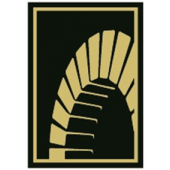
#50: Nebraska Wesleyan University
The nursing curriculum at Nebraska Wesleyan University has several undergraduate and graduate tracks. At the undergraduate level, NWU offers both a traditional four-year BSN and an RN-to-BSN completion program. The traditional BSN graduated its first cohort in May 2018. Students in this program gain clinical experience at many facilities in and around Lincoln, including CHI Health St. Elizabeth Hospital which has held the prestigious Magnet designation since 2004. Graduate nursing students can select from two MSN entry points (BSN-to-MSN, RN-to-MSN) and two focal tracks (nurse educator, nurse leader). The school also offers an MSN/MBA joint degree, an MSN-to-MBA bridge, and a post-master’s certificate in either nursing education or nursing leadership. With the exception of the traditional BSN, students can pursue all nursing programs at either the main university campus in Lincoln or a conveniently located learning site in Omaha.
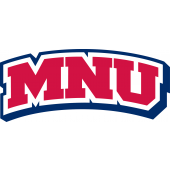
#51: MidAmerica Nazarene University
BSN graduates of MidAmerica Nazarene University have enjoyed an NCLEX exam pass rate of 91% over the past decade. Indeed, the school’s students have exceeded the Kansas average pass rate for at least ten years in a row, consistently scoring an 87-94% pass rate every single year. In addition to a traditional BSN program, MNU offers an accelerated BSN pathway, RN-to-BSN and RN-to-MSN bridge programs, and an MSN curriculum with an MBA dual degree option. Graduate students can also pursue certificates in nursing education, healthcare administration, healthcare quality management, and public health.
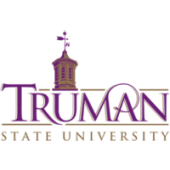
#52: Truman State University
Truman State’s School of Health Sciences & Education prepares students for entry-level positions in the registered nursing field. Two BSN degree pathways are available: traditional and accelerated. Both pathways feature clinical experiences in acute care and community health settings, and both provide access to the ten-bed Nursing Simulation Center. The NSC has several Laerdal mid-fidelity manikins including adult, child, infant, and newborn versions. Truman State graduates approximately 40-50 BSN students each year, with an exceptional NCLEX exam pass rate of 94% over the past decade.

#53: Gustavus Adolphus College
The Department of Nursing at Gustavus Adolphus College offers a BSN degree with many unique features. Students participate in hands-on work experiences at a broad range of clinical sites, including magnet hospitals in the Minneapolis / St. Paul area; specialty clinicals in Utqiaġvik (Barrow, Alaska); intensive pediatrics in Minneapolis; and summer internships in healthcare settings like the Centers for Disease Control (Atlanta, Georgia) and Karolinska University (Stockholm, Sweden). After years of offering the BSN jointly with St. Olaf College, Gustavus Adolphus recently launched a separate program with a small class size of approximately 30 students per cohort. These BSN students have passed the NCLEX exam at an 86% first-time rate over the past several years.
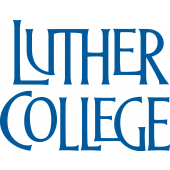
#54: Luther College
Luther College’s nursing graduates achieve some of the highest exam pass rates in the region. Since 2012, Luther’s BSN students have passed the NCLEX-RN licensure examination at an exceptional 95% rate on their first attempt. In addition to superior preparation for the licensure exam, the nursing major provides important perspectives on both rural and urban healthcare, as well as a solid base for graduate nursing study. It also features highly coveted clinical experiences at Mayo Medical Center, Rochester Methodist Hospital, and Saint Mary’s Hospital that begin as early as sophomore year.
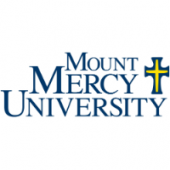
#55: Mount Mercy University
The Department of Nursing at Mount Mercy University produces 60-90 BSN graduates annually who are well-prepared for initial licensure. Indeed, Mount Mercy’s past six BSN classes each passed the NCLEX-RN exam at a rate of 90% or higher, with an average 93% pass rate during that time span. The school also offers RN-to-BSN and MSN degree programs. Nursing students gain clinical experience in a broad array of healthcare settings, including free clinics and local hospitals such as Mercy Medical Center and St. Luke’s. They can also care for patients during immersion experiences in the Philippines, the UK, Ireland, Italy, Belize, and Central America.

#56: Washburn University
Through its education of professional nurses, the Washburn University School of Nursing seeks to improve health, enhance the experience of care, and maximize the value of health services to a diverse population. The school offers three BSN pathways (generic, LPN entry, RN completion), an MSN for aspiring clinical nurse leaders, and a DNP with two specialty areas (family nurse practitioner, psychiatric mental health nurse practitioner). The RN-to-BSN, MSN, and DNP programs are all offered online. Students have access to the university’s state-of-the-art simulation labs, and they can secure clinical placements at top hospitals and healthcare centers throughout the Northeast region of the state. Over the past decade, prelicensure BSN graduates have maintained an 85% pass rate on the NCLEX-RN exam.
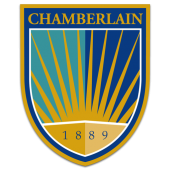
#57: Chamberlain University
Chamberlain University is one of the largest nursing schools in the St. Louis metropolitan area. Approximately 150 students graduate annually from the campus’s accelerated three-year BSN program. These candidates have passed the NCLEX-RN licensure exam at a 90% first-try rate over the past decade. Part of Adtalem Global Education, Chamberlain also offers a wide breadth of online nursing programs. Options include RN-to-BSN and RN-to-BSN-to-MSN degree completion programs; an MSN curriculum with specialty tracks for nursing education, nurse executive leadership, family nursing practice, nursing informatics, and healthcare policy; and a post-master’s DNP program.
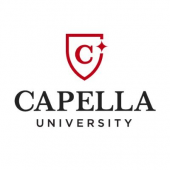
#58: Capella University
Capella University launched in 1993 as The Graduate School of America. In 1997, 14 students graduated from TGSA, earning nine master of science (MS) and five doctor of philosophy (PhD) degrees. Today, Capella has more than 35,000 alumni, as well as 2,700 employees serving 36,000 current students. Capella University offers forty programs with 145 distinct specializations. The School of Nursing and Health Sciences provides a plethora of nursing degree options. Undergraduates with an active, unencumbered RN license can pursue either a traditional RN-to-BSN pathway or an accelerated master’s pathway. Capella’s MSN program offers concentrations in care coordination, nursing leadership and administration, nursing informatics, and nursing education. The first three specializations may also be pursued as a graduate certificate. Finally, the university conducts a post-master’s DNP program with a professionally relevant curriculum that explores healthcare delivery, patient advocacy, and healthcare policy. All of Capella University’s nursing degree programs are accredited by the Commission on Collegiate Nursing Education.
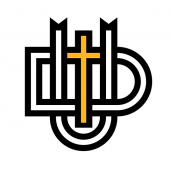
#59: Dordt University
Dordt University has a mission to prepare nurses to enter the healthcare industry as Christians. Students in the school’s BSN program learn to maneuver the unique challenges that Christian nurses face in the current healthcare climate. The program consists of 48 nursing credits and over 700 hours of clinical experience, with additional time in lab and simulation. Dordt University recently unveiled the new Carl and Gloria Zylstra Nursing Education Center, featuring a hospital-like nursing skills laboratory, two high-fidelity patient care simulation studios, and faculty office spaces. Clinical experiences are held in more than 25 local hospitals, clinics, schools, and community settings. Graduates of the program have become nurse anesthetists, physician assistants, nurse practitioners, and midwives. The BSN class of 2019 enjoyed a 100% career outcome rate.
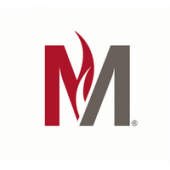
#60: Minnesota State University Moorhead
The School of Nursing & Healthcare Leadership (SNHL) at Minnesota State University Moorhead has educated nurse leaders since 2007. SNHL offers several healthcare degree options including an RN-to-BSN completion program, a bachelor of science in health services administration, an MSN program, and a master of healthcare administration. The school also offers post-baccalaureate certificates in nurse educator (NED) and nursing administration & organizational systems leadership (NAOSL).
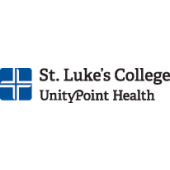
#61: St. Luke’s College
St. Luke’s College has educated compassionate healthcare professionals for over a century. Students gain a wealth of meaningful clinical experiences in the region’s only medical-center-based health sciences college. Each year, St. Luke’s College accepts an incoming ADN class of 100-120 students. Approximately 75% of students complete the program within three years. These graduates perform very strongly on the NCLEX licensure exam, achieving a 92% first-time pass rate over the past decade. An additional 25-35 students enroll in St. Luke’s RN-to-BSN pathway each fall. This completion program features flexible full-time and part-time schedules, thanks to a combination of online courses, classroom learning, and convenient access to faculty.
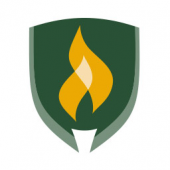
#62: Rasmussen University
Rasmussen University opened in 1900 as Rasmussen Practical School of Business in St. Paul, Minnesota. Today, Rasmussen operates 23 campuses in six states as well as a thriving online division. The School of Nursing houses 600 faculty that serve 8,500 students across the full gamut of pre- and post-licensure programs. Prelicensure options include a practical nursing diploma, an associate degree in professional nursing, and a traditional BSN degree. These programs are delivered through the university’s network of campus locations. Indeed, Rasmussen was the largest educator of ADN graduates in the country during 2020, as well as the largest educator of LPN graduates in both Florida and Minnesota. Post-licensure options include an RN-to-BSN completion program, an MSN degree with four advanced nursing specializations, and a DNP program with executive leadership and public health specializations. These programs are delivered through a combination of online courses and field experiences, making them more accessible to working nurses.
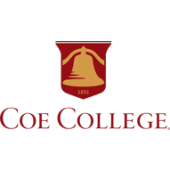
#63: Coe College
The BSN program at Coe College offers three full terms of clinical experiences at high-quality hospitals, specialty units, medical clinics, and penitentiaries. Students in this selective program enjoy small class sizes, face-to-face faculty meetings to discuss clinical experiences in real-time, and health-focused study abroad opportunities in England, Korea, and Tanzania. They also have the opportunity to participate in the Coe College Student Nurses Association, which organizes blood drives, student health fairs, and fundraising for community organizations. Since 2012, BSN graduates have averaged a phenomenal 97% first-time pass rate on the NCLEX-RN licensure exam.
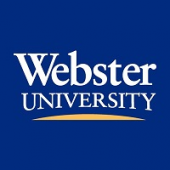
#64: Webster University
Webster University’s College of Arts and Sciences houses a nursing department that offers RN-to-BSN, MSN, and doctor of nurse anesthesia practice (DNAP) programs. The RN-to-BSN curriculum focuses on holistic health promotion for the individual, the family, diverse groups, and the broader community. The program is offered online or on-site in part-time eight-week sessions. The MSN program allows students to choose a nurse educator, nurse leader, or healthcare leadership specialization. Designed for working professionals, the MSN is also delivered through part-time courses in eight-week terms. The DNAP program offers clinical experiences at ten private-practice and university-based facilities. Students obtain real-world exposure at most of these institutions by the time they graduate.
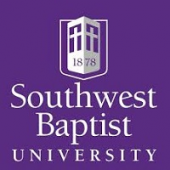
#65: Southwest Baptist University
Southwest Baptist University offers ADN, traditional BSN, RN-to-BSN, and MSN programs. The ADN provides foundational nursing knowledge and skills for the registered nurse generalist, and it prepares students to sit for the NCLEX-RN exam. ADN graduates have passed this licensure exam at a solid 86% rate over the past decade. The 34-credit-hour RN-to-BSN program is designed with the working professional in mind. It offers a flexible course sequence option including a fully online eight-week block schedule, with one block of experiential service learning activities that students may complete locally. The MSN program offers focal areas in nursing education and administration, with a combination of online courses, hybrid classes, and clinical experiences. Students may complete the MSN program in three years part-time, two years full-time, or 18 months accelerated.
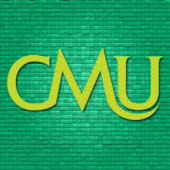
#66: Central Methodist University
Central Methodist University offers several pathways to a baccalaureate or master’s degree in nursing. The school’s traditional BSN program is taught in the Thogmorton Center for Allied Health on the university’s residential campus in Fayette. Each graduating cohort is small, typically around forty students. These graduates have scored an 89% first-time pass rate on the NCLEX exam over the past decade, including a perfect 100% pass rate in 2018. Students with a non-nursing bachelor’s degree can pursue an accelerated BSN at the CMU center in Columbia. ADN- and diploma-prepared nurses can enroll in an RN-to-BSN program offered at three CMU centers (Arnold, St. Charles, St. Louis) and online. Finally, graduate nursing students can pursue an online MSN with tracks for aspiring clinical nurse leaders and nurse educators.
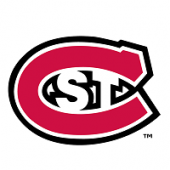
#67: St. Cloud State University
St. Cloud State University offers an undergraduate nursing program that boasts a 92% first-time pass rate on the NCLEX-RN licensure exam over the past decade. The program, which leads to the BSN degree, features study abroad opportunities in Concepcion, Chile; a simulation lab that teaches students how to use the latest equipment in the field; and numerous volunteer and internship opportunities. The Department of Nursing at St. Cloud State also partners with agencies across the state to give students rich and diverse clinical learning experiences in their final one-month capstone experience.
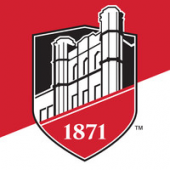
#68: University of Central Missouri
The University of Central Missouri offers a unique nursing program that includes both urban and rural clinical experiences. This diverse exposure has helped UCM’s nursing graduates achieve a 100% employment rate. The school’s 70-80 annual BSN graduates have also enjoyed a solid 88% first-time NCLEX pass rate over the past decade. In addition to a traditional BSN, the undergraduate nursing department offers an online RN-to-BSN program that can be completed in just one calendar year. UCM’s graduate nursing department offers an MSN with two emphasis areas: nurse educator and family nurse practitioner.
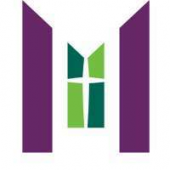
#69: Mercy College of Health Sciences
Mercy College of Health Sciences offers both an associate of science in nursing (ASN) and a bachelor of science in nursing (BSN). The ASN program is offered in a part-time format on evenings and weekends to cater to working professionals. Over the past decade, Mercy College’s ASN graduates have maintained a solid 85% pass rate on the NCLEX licensure exam. The BSN program offers five distinct pathways: a generic three-year BSN, an accelerated BSN (ABSN) for students with a non-nursing baccalaureate degree, a unique ABSN partnership with Drake University, an RN-to-BSN program offered 100% online, and Iowa’s first and only Paramedic-to-BSN program. Mercy College’s RN-to-BSN students can select three specialty seminars from seven topics to create a program that fits their interests.
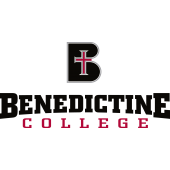
#70: Benedictine College
The Department of Nursing at Benedictine College offers a prelicensure BSN program that accepts 25 new juniors each fall. Interested students must submit an application to the nursing program during their sophomore year at Benedictine, and admission is very competitive. The college places special emphasis on the spiritual care and psycho-social support of patients, as well as fostering nursing leadership in its BSN students. The school counts among its alumni Madeleine M. Leininger, a retired professor and founder of the worldwide transcultural nursing movement. Since the BSN program’s inception, students have averaged an 81% first-time pass rate on the NCLEX licensure exam, including a perfect 100% pass rate during 2017.
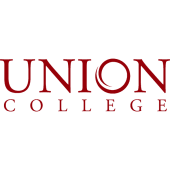
#71: Union College
Union College, a Seventh-day Adventist institution, offers several pathways to a BSN degree including a traditional undergraduate program, an LPN-to-BSN pathway, and an RN-to-BSN completion option. The LPN-to-BSN pathway is an advanced standing prelicensure program that includes 65 credit hours of nursing courses, 41 credit hours of general education courses, and 13 credit hours of electives. Students cover a broad collection of relevant topics, ranging from creative leadership to elementary statistics and probability. Union College graduates approximately forty prelicensure students each year, with a strong 95% NCLEX pass rate over the past decade. The RN-to-BSN program is designed for ADN- or diploma-holding nurses who wish to complete their baccalaureate education.
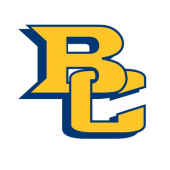
#72: Briar Cliff University
In 1930, Briar Cliff University opened with just one building and 25 female students. Today, the school serves 1,100 students from all backgrounds. The Department of Nursing offers the most complete selection of nursing programs in western Iowa, including two BSN pathways (traditional and degree completion), an MSN program, and the terminal DNP degree. Briar Cliff students gain hands-on experience through clinical practice in hospitals, community health agencies, long-term care facilities, and other community-based settings. They also learn in state-of-the-art laboratories, including the region’s only educational cadaver labs. The past two graduating BSN classes have averaged an 80% first-time pass rate on the NCLEX-RN licensure exam.
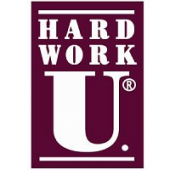
#73: College of the Ozarks
College of the Ozarks (C of O) is home to the Armstrong McDonald School of Nursing, which offers a traditional four-year professional BSN. This competitive program takes a Christ-centered, Biblically-based, character-driven approach to nursing education. The college combines a curriculum grounded in Florence Nightingale’s Environment Theory with leading-edge learning technology and patient care simulation. Nursing courses are sequenced over a six-semester plan, with clinical experiences offered everywhere from the Ozark Mountains to metropolitan areas. Over the past decade, C of O graduates have averaged a 94% first-time pass rate on the NCLEX-RN licensure exam.
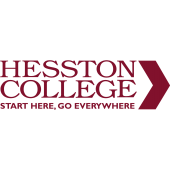
#74: Hesston College
Hesston College, traditionally a two-year liberal arts college, now offers several pathways to a bachelor’s degree in nursing. In the fall of 2015, Hesston launched a four-year BSN program and an LPN-to-BSN bridge to meet the region’s increasing demand for baccalaureate-prepared nurses. The BSN curriculum, which is fully accredited by the Commission on Collegiate Nursing Education, graduates approximately forty students annually. These graduates have achieved an 85% first-time pass rate on the NCLEX licensure examination since the program’s inception. The recently discontinued ADN program also witnessed excellent student outcomes over its fifty years, educating more than 1,600 nurses with a first-time NCLEX pass rate typically around 90%. Hesston College’s nursing graduates enjoy a 100% job placement rate across a diverse range of clinical settings including medical-surgical, maternal, and pediatric care.

#75: Southeast Missouri State University
Founded in 1873 as a teacher’s college, Southeast Missouri State University now serves 11,000 students through 150 academic programs across five distinct colleges. The College of Health and Human Services is the academic home for the university’s Department of Nursing. The department offers a traditional prelicensure BSN program, an RN-to-BSN bridge option, and an MSN degree with family nurse practitioner and nurse educator tracks. The traditional BSN program graduates a cohort of 50-70 students annually. These graduates have averaged a 92% NCLEX pass rate over the past decade, including stellar pass rates of 96% in 2018 and 94% in 2019 and 2020. The RN-to-BSN pathway is offered 100% online and requires just six nursing courses, with field experiences conducted in the student’s region. The MSN curriculum prepares students for advanced nursing practice and, should they so choose, continued doctoral study.
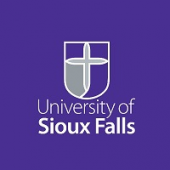
#76: University of Sioux Falls
The USF School of Nursing has several options for earning a BSN degree. Each track is tailored to the needs of a particular student profile. The traditional four-year BSN is for students seeking their first undergraduate degree, the four-semester accelerated BSN is for career changers who possess a bachelor’s degree in a non-nursing field, and the RN-to-BSN is for ADN- or diploma-prepared nurses who wish to complete their baccalaureate education. Approximately 40-60 students graduate annually from the prelicensure (traditional and accelerated) tracks, while another twenty students graduate annually from the RN-to-BSN program. The prelicensure students have averaged a 91% first-time NCLEX pass rate since the program’s launch, including a stellar 96-98% pass rate in each of the past four years.
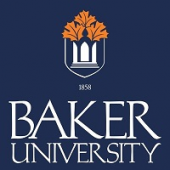
#77: Baker University
The School of Nursing at Baker University offers BSN and MSN degree programs. Students in the BSN program will enjoy two years of traditional undergraduate experience at Baker’s College of Arts and Sciences before earning the required 64 hours of nursing coursework at prestigious Stormont Vail Health in Topeka, Kansas. The program features a rigorous curriculum, early immersion into clinical settings, and top licensure exam pass rates. Since 2012, BSN graduates have scored an exceptional 94% first-time pass rate on the NCLEX exam. Coursework for the MSN program, which has tracks in nursing education and nursing administration, is offered 100% online.
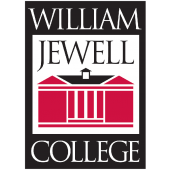
#78: William Jewell College
William Jewell College has produced more than 1,000 nursing graduates who work in staff and leadership positions at just about every hospital in the Kansas City area. The undergraduate nursing program boasts an overseas experience in Central America, participation in the Pryor Leadership Program, and an employment rate of 85% immediately after graduation. William Jewell College graduates 90-100 BSN students annually, and these graduates have averaged an 86% NCLEX pass rate over the past decade.
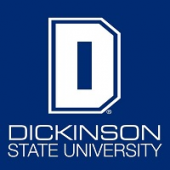
#79: Dickinson State University
Dickinson State University’s Department of Nursing is part of the College of Nursing, Business, and Applied Sciences. Students here can earn the rare associate of applied science in practical nursing (AASPN) before completing a BSN degree. The AASPN requires 66 credit hours of study and clinical experience. LPN graduates have achieved a solid 92% pass rate on the NCLEX-PN licensure exam over the past decade. The BSN curriculum then builds upon the AASPN’s general education, interdisciplinary, and nursing course requirements. BSN graduates have witnessed similarly strong test scores, achieving a 91% pass rate on the NCLEX-RN licensure exam over the past decade. Dickinson State also offers an ADRN-to-BSN bridge program, designed for ADN- or diploma-prepared nurses who wish to complete their baccalaureate education.
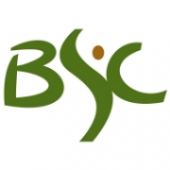
#80: Bismarck State College
The Dakota Nursing Program at Bismarck State College offers tightly integrated LPN and ADN programs. The practical nursing program allows students to earn a certificate after the first 11 months of nursing classes. If students maintain a 2.75 GPA and meet other matriculation requirements, they may complete the second year of study which leads to the associate degree. Clinical experiences at local hospitals, nursing homes, and agencies provide exposure to a vast array of healthcare settings, including the emergency room, intensive care unit, maternal / newborn care, the operating room, pediatrics, and psychiatry. Over the past decade, ADN graduates have scored an exceptional 95% pass rate on the NCLEX-RN licensure exam, while their LPN counterparts achieved a near-perfect 99% pass rate on the NCLEX-PN licensure exam.

#81: SoutheastHEALTH College of Nursing & Health Sciences
SoutheastHEALTH College of Nursing & Health Sciences offers an ADN program with four distinct tracks. Students with no prior nursing education can pursue the two-year fulltime pathway, while existing LPNs can enroll in an accelerated LPN-to-RN bridge program. The college also offers tracks during the evenings and weekends, both for LPN-to-RN students and for students with no prior nursing education. Across these four pathways, the college typically graduates about sixty students annually. These students have averaged an 86% first-time NCLEX pass rate over the past decade, including phenomenal pass rates of 96% to 98% in each of the past three years. An RN-to-BSN program is also available for ADN- or diploma-prepared registered nurses who wish to complete their baccalaureate education.
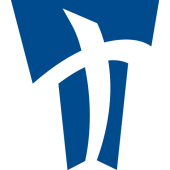
#82: Tabor College
Tabor College offers a broad liberal arts curriculum with a strong Christian foundation. The school has enjoyed an affiliation with the Mennonite Brethren Church since its establishment in 1908. Tabor provides two online degree options in the field of nursing: an RN-to-BSN completion pathway and an MSN program with a specialty track in executive leadership. Both degree programs are fully accredited by the Commission on Collegiate Nursing Education. The RN-to-BSN pathway is structured as a series of five-week courses that students may complete in approximately 16 months, culminating with a clinical capstone project. The MSN program also tackles one course at a time over a 24-month curriculum. Tabor College is proud to provide some form of financial aid to all students.
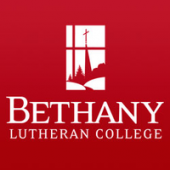
#83: Bethany Lutheran College
Bethany Lutheran College is a small, four-year, Christian liberal arts college that offers 24 distinct majors. The nursing major combines classroom instruction with hands-on learning in both the school’s nursing laboratory and clinical settings. The lab houses manikins, equipment, and materials that help students to hone their nursing skills in a safe learning environment. Clinical settings include the Lutheran Home in Belle Plaine, the Mayo Clinic Health System, and Oaklawn Rehabilitation Center. Bethany’s nursing program also features an international immersion experience. BSN graduates work in a variety of healthcare environments spanning hospitals, home care, acute care, and public health.
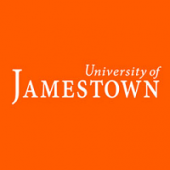
#84: University of Jamestown
The University of Jamestown’s BSN program offers students the opportunity to travel to Chogoria, Kenya or Nkhoma, Malawi to deliver healthcare in hospitals and villages located deep in the jungle. Students will visit schools and orphanages during their three-week stay. UJ also offers an international leadership opportunity in a Nha Trang, Vietnam hospital. Closer to home, the university’s students benefit from clinical experiences at major local healthcare centers like North Dakota State Hospital, Sanford Medical Center, and Jamestown Regional Medical Center. Over the past decade, BSN graduates have achieved an 84% first-time pass rate on the NCLEX-RN licensure exam. Many graduating classes have also enjoyed a 100% job placement rate.
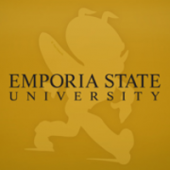
#85: Emporia State University
Emporia State University (ESU), founded in 1863 as the Kansas Normal School, was the state’s first public institution of higher learning and teacher training school. Today, ESU offers more than 100 programs to 6,000 students. The Department of Nursing leads a four-year baccalaureate nursing program that requires 128 credit hours to complete. The program has educational tracks for traditional students, licensed practical nurses, and registered nurses. Class sizes are small, with just 25-50 prelicensure students in each graduating cohort. These students have achieved an excellent 91% first-time pass rate on the NCLEX-RN licensure exam over the past decade.
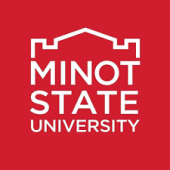
#86: Minot State University
Serving nearly 3,200 students, Minot State University is the third-largest university in North Dakota. The Department of Nursing offers both a prelicensure BSN program and an online RN-to-BSN pathway. Students enjoy high-fidelity clinical simulations in the university’s Nursing Clinical Simulation Center. They also gain hands-on work experience in the Adult Health Maintenance Clinic, which helps elderly persons remain independent. The prelicensure BSN program graduates a close-knit cohort of 25-40 students annually. Over the past decade, these BSN students have scored a strong 91% first-time pass rate on the NCLEX licensure exam.
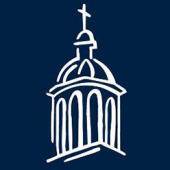
#87: University of Saint Mary
University of Saint Mary was founded in 1923 as a junior college for women. Today, the school serves a coed population of 1,400 students across two campuses in Leavenworth and Overland Park. The university offers CCNE-accredited nursing programs at the baccalaureate and master’s degree levels. BSN candidates can choose from three pathways: traditional prelicensure, 12-month accelerated, and online RN-to-BSN. Clinical rotations round out the undergraduate student’s classroom experience. Approximately 50-60 BSN students take the NCLEX-RN licensure exam each year; they have enjoyed an 89% first-time pass rate over the past decade. Graduate students can choose from three MSN tracks: nurse administrator, nurse educator, or the only family nurse practitioner track in the state of Kansas.
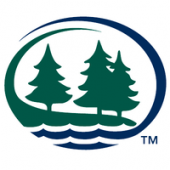
#88: Bemidji State University
Bemidji State University offers its BSN program in a clinical setting that prepares students to address patient health needs in a changing and diverse environment. Two tracks are available to complete the baccalaureate degree. The four-year BSN track is designed for students just beginning their nursing education. The two-year RN-to-BSN track is for licensed RNs with an associate degree or diploma. Students in both programs receive an innovative curriculum that covers critical topics like technology, rural health, family health, cultural awareness, and palliative care. The four-year BSN program graduates 40-60 students annually, who have scored a solid 83% first-time NCLEX pass rate since the program’s inception.
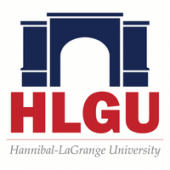
#89: Hannibal-LaGrange University
The Department of Nursing at Hannibal-LaGrange University has clinical affiliations with Hannibal Regional Hospital and Blessing Hospital. HLGU offers an entry-level curriculum for aspiring LPNs, an associate of science in nursing (ASN) for aspiring RNs, and an online RN-to-BSN degree completion program. Graduates of both prelicensure programs have consistently performed well on their licensure exams. ASN graduates passed the NCLEX-RN exam at a strong 88% rate over the past decade, and LPN candidates passed the NCLEX-PN exam at a stellar 90% rate during the same time period.
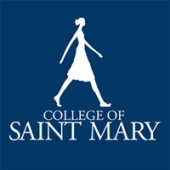
#90: College of Saint Mary
College of Saint Mary is the region’s only Catholic university for women. It is also the only school in Nebraska to offer a three-year prelicensure BSN program. College of Saint Mary actually offers two prelicensure BSN pathways (accelerated three-year, traditional four-year) as well as a one-year certificate in licensed practical nursing. The college is noted for its small class sizes, study abroad experiences, and intensive service learning opportunities. Indeed, CSM has provided more than 10,000 hours of service to more than fifty organizations in the surrounding community, and Campus Ministry offers two service learning opportunities each year. Over the past decade, LPN graduates have achieved a strong 93% pass rate on the NCLEX-PN licensure exam. BSN graduates have scored an 81% NCLEX-RN pass rate since the program’s inception, including an 87% pass rate in 2018.

#91: Lake Area Technical College
Lake Area Technical College prepares more than one quarter of South Dakota’s new LPN graduates each year. In fact, the practical nursing program is one of just two nationally accredited programs in the state. LATC students can select from three LPN pathways, including fulltime (11-month) campus and hybrid options and a parttime (23-month) hybrid option. The hybrid programs combine online coursework with traditional clinical experiences, conducted at both the LATC campus and a remote site convenient for the student. LPN graduates perform exceedingly well on the NCLEX-PN licensure exam, with a 97% first-time pass rate over the past decade. Lake Area Tech recently built on the success of its LPN curriculum by launching an LPN-to-RN bridge program. This pathway awards an associate of applied science (AAS) degree after a rigorous 11-month course of study in preparation for RN licensure. The inaugural graduating AAS class scored a 91% first-time NCLEX-RN pass rate.
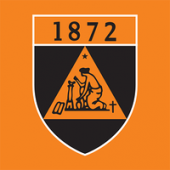
#92: Doane University
Doane University traces its roots back nearly 150 years. In 2010, the school introduced an RN-to-BSN program that allows registered nurses with an associate degree or hospital diploma to complete their baccalaureate education. Students can earn up to 72 credit hours for previous education or work experience, and clinical requirements may be completed in the student’s own community. The curriculum, which requires 123 total credit hours to graduate, may be completed online, on-campus, or a combination of the two. The entire program typically takes two years or less to complete.
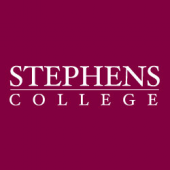
#93: Stephens College
Founded in 1833, Stephens College is the second-oldest women’s college in the country. The school provides programs in the health sciences, integrative studies, and performing arts. The Stephens College School of Health Sciences has a direct-entry BSN program with a limited enrollment of 24 students per cohort. Students begin nursing classes in the first year, with program completion in as little as three years of fulltime study. On campus, BSN students learn in a state-of-the-art simulated nursing center that was converted from an actual former patient care unit, known as The Learning Center at Boone Health. Off campus, and just a block away, students work with real patients at Magnet Hospital Boone Health to gain experience and fulfill clinical requirements.
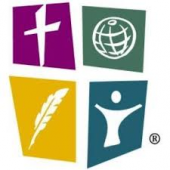
#94: Concordia University, St. Paul
Concordia University, St. Paul (CSP) is a private liberal arts university with over eighty programs for students seeking traditional undergraduate, degree completion, graduate, or doctorate degrees. In 2017, CSP expanded its nursing offerings with the addition of a prelicensure BSN. Like the university’s existing RN-to-BSN program, the prelicensure BSN provides a curriculum that is relevant to the current healthcare arena. The prelicensure program is offered year-round in a traditional academic setting, allowing students to complete their degree in just three years. The RN-to-BSN program is conducted online and may be completed in two years or less.
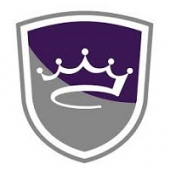
#95: Crown College
Crown College provides Biblically based education for Christian leadership in a number of professional careers including healthcare. Program options for aspiring nurses include traditional BSN and RN-to-BSN pathways. The traditional BSN is a four-year program for undergraduate students, and the RN-to-BSN is an online program for existing RNs that takes just 18 to 20 months to complete. Crown College offers its students numerous opportunities to participate in off-campus clinical settings, access to the Nursing Intervention Lab, and web-based programs integrated across the curriculum to create real-world experiences. Traditional BSN graduates have achieved a solid 86% NCLEX pass rate over the past decade, including an excellent 95% pass rate in 2017.
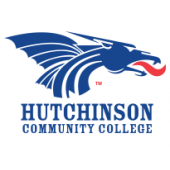
#96: Hutchinson Community College
Hutchinson Community College offers aspiring nurses the opportunity to earn either a certificate in practical nursing or an associate degree in registered nursing. HCC’s practical nursing program is accredited by the Accreditation Commission for Education in Nursing, one of just two such accredited programs in Kansas. The college’s ADN program offers four pathways: a traditional two-year schedule, campus and online versions of an LPN-to-RN bridge, and an online paramedic-to-RN bridge. The LPN and paramedic pathways are the state’s first online ADN programs. Graduates of all nursing pathways perform admirably on their licensure exams: HCC students have posted an 86% NCLEX-PN pass rate and an 83% NCLEX-RN pass rate over the past decade.
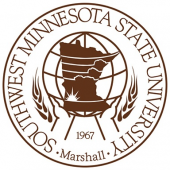
#97: Southwest Minnesota State University
Southwest Minnesota State University (SMSU) is one of seven state universities within the Minnesota State Colleges and Universities system. The SMSU Department of Nursing launched a CCNE-accredited RN-to-BSN degree completion program in the fall of 2013. The program allows RNs with a current, unencumbered license and a two-year degree or diploma to earn their baccalaureate degree in a streamlined manner. Coursework is conducted predominantly online. Students have the opportunity to visit campus up to five times throughout the program.

#98: Bellevue University
Bellevue University is a private, non-profit, regionally accredited institution with more than 50,000 alumni nationwide. The university’s nursing program sits within the College of Arts and Sciences. It allows registered nurses with an ADN or hospital diploma to complete their baccalaureate nursing education. This RN-to-BSN program is offered online and requires 127 credit hours to graduate. The curriculum teaches the fundamentals of leadership and what makes an effective healthcare team. During their final year, students complete a hands-on practicum in their local area, allowing them to apply the concepts they have learned in realtime. Students will develop and execute an evidence-based plan, and then reflect on the outcomes.
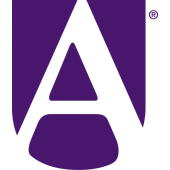
#99: Avila University
Avila University began in 1916 as St. Teresa’s College, the first private college for women in Kansas City. Today the school serves a coed population of 1,700 students across more than sixty undergraduate majors and six graduate programs. The university’s School of Nursing offers a traditional prelicensure BSN degree program. The curriculum covers the arts, humanities, natural sciences, and social sciences, as well as nursing theory and skills. Emphasis is placed on safe nursing practice, effective communication, evidence-based clinical reasoning, and socially responsible healthcare. Avila University graduates approximately forty prelicensure BSN candidates annually. Over the past five years, these students have averaged a remarkable 97% first-time pass rate on the NCLEX-RN licensure exam.
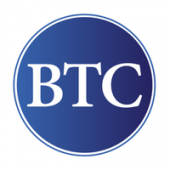
#100: Bolivar Technical College
Bolivar Technical College is the sister campus of Texas County Technical College. The school specializes in adult education, combining classroom instruction with hands-on experience to prepare graduates for immediate employment. Bolivar Technical College offers several nursing pathways including a ten-week CNA course, a one-year LPN certificate, and two entry options for an associate degree in nursing (20-month generic program, 12-month LPN-to-RN bridge). Across all programs, graduates have an excellent track record on their respective certification or licensing exams. For example, ADN graduates have posted an 86% first-time pass rate on the NCLEX-RN exam over the past decade. Six of the past eight LPN classes notched a perfect 100% pass rate on the NCLEX-PN exam.
